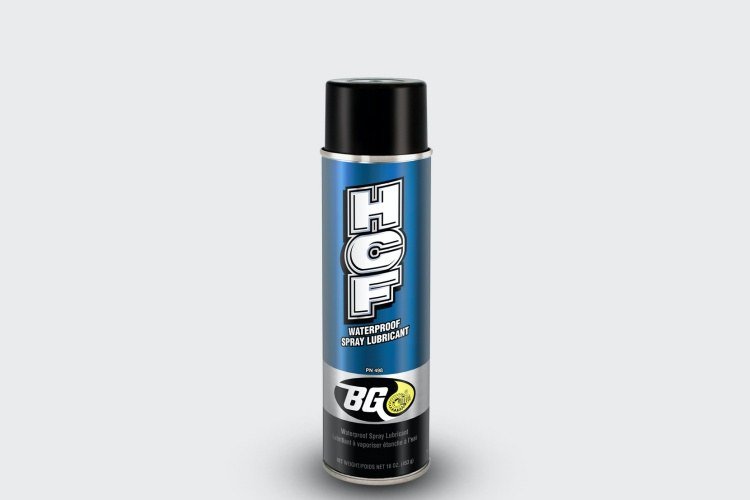Lubricating the moving components of your garage door can help to extend the useful lifespan of the opening mechanism, saving you both time and money. However, not all lubricants were created equal so before you grab a can of whatever you happen to have to hand, take a few minutes to read our short guide. After you’ve finished, you’ll know which lubricant is the best choice for you and your garage door, whether you live close to us in Littleton, CO, or in a different part of the country altogether. If you do happen to live in the same part of the country as us, don’t forget that we specialize in overhead garage door repair so if you encounter any issues you can’t fix with a suitable lubricant, you’re more than welcome to call us for help.
Garage Door Lubricant Advice From the Garage Door Repair Littleton Team
Before we dive into the details, let’s start with a broad overview, a garage door lubrication 101 if you will.
- Why Use Lubricant in the First Place? – The reason we recommend using a quality lubricant is because we have firsthand experience of what can happen if you don’t: from prematurely worn components to complete failure of the opening mechanism and stuck garage doors. If you would prefer to avoid these potential hassles, you should lubricate your garage door on a regular basis.
- How Often Should You Lubricate Your Overhead Doors? – The frequency with which you apply lubrication will depend to some extent on the local climate, how often you open and close your garage door and the type of lubricant you decide to use. However, as a rule of thumb, we recommend applying a good-quality lubricant at least once every six months and more often if required.
- Where to Apply the Lubricant? – Generally speaking, you should aim to lubricate all moving parts in order to reduce wear and tear from friction. This should include the torsion springs, extension springs, rollers, tracks and bearings. Any part of the opening mechanism where metal rubs on metal should be regularly lubricated.
Now you know the basics, we’ll move on to consider the main benefits of lubricating your garage door.
Lubricating Garage Doors: What You Stand to Gain
In addition to the primary benefit of reducing wear and tear, you will also enjoy the following benefits if you lubricate your garage door on a regular basis:
- Smoother Operation – Moving parts glide across each other more easily when they are coated with a high-quality lubricant.
- Less Noise – Annoying squeaks and groans are a common symptom of poorly lubricated overhead garage doors. You can look forward to noise-free operation when you start to lubricate every moving part.
- Rust Prevention – Metal components that are liberally coated with a protective coat of oil or grease will be less likely to corrode over time, extending the longevity of your garage door opening mechanism.
With all these benefits to look forward to, lubricating your garage door just makes good sense, whatever way you look at it. It won’t cost a whole lot of money and it could save you thousands of dollars in future repair bills. But what sort of lubricant should you use?
Choosing the Best Lubricant for Your Garage Doors
If you’re already convinced that lubricating your garage door on a regular basis is a good idea, you’ll now want to find the best lubricant for the job. In our experience, there are two main types of lubricants that have the potential to work well for this specific application:
- Lithium Grease – It’s durable, highly effective and does not emit any noxious fumes, making it an excellent choice for all metal-to-metal lubrication applications around the home, including your overhead doors. The only potential downside we have encountered is the fact it turns a white color when it dries, which some people find irritating. However, if you are more concerned with performance than aesthetics, we can definitely recommend lithium grease for all of the moving metal components in your garage door opening mechanism.
- Silicone Spray Lubricant – A number of very reputable brands produce silicone spray lubricants that work well on garage door components. As these sprays usually come with a straw spray adapter, they are very handy for getting into the harder-to-reach spots that you need to lubricate, such as the torsion springs and some of the bearings. However, because silicone does not provide the same level of protection as lithium grease, we recommend using both in combination rather than choosing one over the other. Use the lithium grease for the easier-to-reach components and the silicone spray for any parts you cannot get to with the grease.
If you follow our recommendation and use these two types of lubricant together, you should get excellent results.
Lubricants to Avoid Using on Garage Doors
We’re going to finish up with a word of warning: some lubricants are most definitely not a good choice for garage door opening mechanisms so please don’t use them on yours! The following two are especially unsuitable:
- WD-40 – A great product for cleaning metal components but it is not designed to lubricate them
- Heavy Grease – It will attract all manner of dirt and debris so should also be avoided for this application
If you need any professional help with your overhead doors or your garage door opener remotes, don’t hesitate to call our garage door service team for a free estimate on local services.

